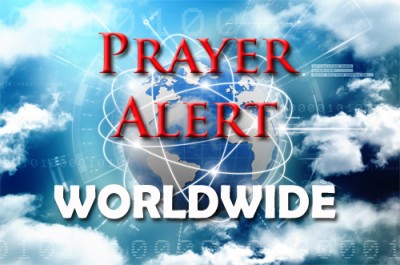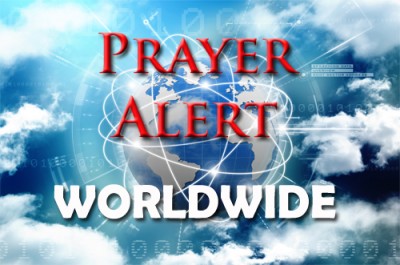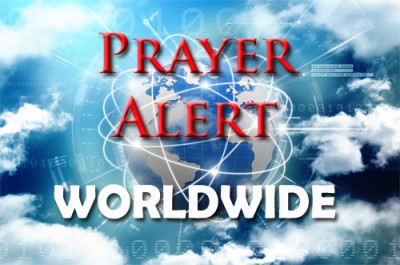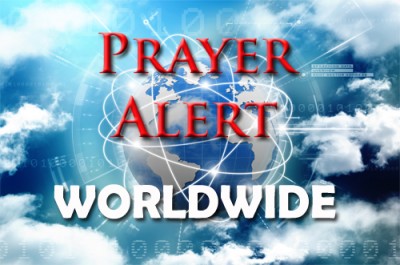UK will honour Hong Kong passport promise
02 Jul 2020Dominic Raab says that China’s new laws (see world article 3 below), cementing its control over Hong Kong, are a serious violation of the 1997 agreement about Hong Kong's future. Boris Johnson has said he will now make it possible for those with British National Overseas status to enter the UK, with limited leave to live and work and apply for British citizenship. The ‘new bespoke immigration route’ means an eligible Hong Kong resident could move to the UK without the current limits, and would be able to live and work in the UK for five years. After that they (and their dependents) could apply for settled status and eventual citizenship. China firmly opposes this and reserves the right to take corresponding measures. Australia is also considering offering a safe haven for Hongkongers.
Pandemic vaccine trials
02 Jul 2020Professor Sarah Gilbert, the world-renowned expert leading Oxford University’s team devising a vaccine, told MPs that it would provide ‘a good duration of immunity for several years at least, and probably be better than naturally-acquired immunity.’ Asked for a timeline on the vaccine amid concerns of facing the winter without one, she said, ‘I hope we can improve on those timelines and come to the rescue.’ 8,000 Britons are in a major trial of the Oxford vaccine, and an experimental vaccine is being tested by a German partner. These trials showed encouraging early results, producing neutralising antibodies between 1.8 and 2.8 times greater than those of recovered patients. The key question is whether the vaccine will protect people from becoming infected, or simply make them less ill. It may also work less well in older people because their immune systems are weaker.
Germany: recovery and healing
02 Jul 2020The lockdown in most of Europe is gradually easing. Social distancing regulations remain in force, but there is no distance spiritually between us and our Father in heaven. We can continue to pray for Europe, and for Germany which assumes the presidency of the EU Council for six months from 1 July. Its government has announced a 130 billion Euro recovery package to strengthen and promote investment from businesses and municipalities. Please pray that in the coming economic challenges that there will be an attitude which serves and protects people’s lives rather than finances (Leviticus 25:35-37). Social unrest has intensified recently in Europe and globally. In times of crisis, social solidity comes under pressure and the divisions within society drive people apart.
France: Macron's tribulations
02 Jul 2020In 2017 Emmanuel Macron won 66% of the vote to become France's youngest-ever president. It was the first time in half a century that France had a president from outside its two main political parties. An incumbent's first term in office usually defines his political identity and policy agenda. But three years into a five-year term, in trying to win support from a politically diverse electorate, Macron has failed to define his political agenda or his natural political base. With preparation for re-election in 2022 firmly on his mind, he faces a series of challenges. His LREM party took a thrashing in recent local elections, a clear rebuke for tying his potential next term to a robust environmental and social agenda. The crushing of LREM's candidate in Paris' mayoral race was particularly embarrassing for the party.
The Bible has been translated into more languages than any other book, yet the history of Bible translations is contentious and bloody. Many translators were burned at the stake. Today Islam is spreading, and in some countries Bibles are a rare commodity. Please pray for people groups without a Bible in their mother tongue. Pray for organisations like the Bible Society, Wycliffe, and many others translating and distributing God's Word. May the translators have Holy Spirit discernment to accurately depict the original text into the various cultures and dialects. Pray for those publishing scriptures in print, audio, visual, braille, technical devices and various advanced layouts. May the distribution avenues they use be unobstructed. Pray also for God's protection for Christians being persecuted for living by God’s word in hostile dangerous environments. May all believers have safe spaces in which to study, grow in their faith, and share God's teaching.
Zimbabwe: economic crisis, poverty
02 Jul 2020A shopper grumbled while returning a loaf of bread to a rack - the price had jumped by a third. Nearby a half-mile queue of cars waited at an empty petrol station hoping for a delivery. Zimbabwe has an economic crisis. Basic goods prices rise weekly as the value of the Zimbabwean dollar tumbles. Inflation was 785.6% in April, and poverty is deepening. UN aid agencies reported that 7.7 million people, half of the population, require food assistance. A loaf of bread went up 36% last month, and last week a 22-pound sack of cornmeal jumped 30%. Fuel soared by 152% recently; a similar rise in 2019 sparked national demonstrations and deaths. ‘Things cannot continue this way. These people should just admit they have failed,’ said a Harare resident, referring to President Mnangagwa’s government which took power pledging to revive the economy. Pray for food aid to reach the hungry.
Hong Kong: security law passed
02 Jul 2020China has passed a controversial national security legislation for Hong Kong that will cover acts of ‘secession, subversion, terrorism and interference by foreign powers in the territory's internal affairs’ while allowing mainland China’s intelligence agencies to establish themselves there. Critics say this will outlaw dissent and destroy the autonomy and freedoms promised in the Sino-GB agreement when Hong Kong was returned to China in 1997. The draft of the law was announced on the anniversary of this event, symbolically implying that China is in charge and its leaders will do whatever they deem necessary to protect Hong Kong. On 1 July police fired water cannon and tear gas while arresting 300+ people protesting in defiance of the sweeping legislation, and a ‘dissident’ was arrested at the airport before boarding a plane to the UK. Amnesty International warned, ‘China's aim is to govern Hong Kong through fear from this point forward’.
Church-planting and discipleship movements
02 Jul 2020During the last 25 years thousands of new followers of Christ have been born among peoples who were historically starved of the gospel. These mass turnings to Christ are happening among Muslim, Hindu, and Buddhist peoples through natural networks of family, household, and friendship. The gospel is introduced through a person with an abundance of natural links in the community, often called a ‘person of peace’. Discipleship is learnt in groups meeting to discuss the scriptures and seeking to obey Christ. Each person is taught to reproduce the discipleship process in their own networks. Living out the Kingdom by serving others is seen as important in glorifying God and in reducing hostility to the message. Praise God that many thousands of people are meeting Christ in Muslim, Hindu and Buddhist communities. Pray for church-planting initiatives around the world to be channels of grace.







